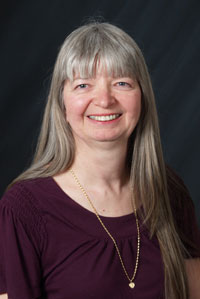"My music teachers always said to me, 'You're gifted for music, but not this, and not that, and not that.' I kept on trying—piano, voice . . . And I kept wondering, despairing, almost, of finding what I was gifted for. It was, believe it or not, at Bible school that the teachers convinced me to take a double major and work on all the requirements for the music major on top of Bible. And as I studied harmony and counterpoint, I realized I really liked that, and student groups were asking to sing the songs I was writing. It was when I discovered composition that people told me, 'Now you've found your gift.'"
"In the early '80s, I felt I needed nonclassical music. Even though I was imitating everything I could hear on the radio, I felt I needed more training. At the time I didn't know anything about nonclassical music. But I remember a lady in our church in Belgium actually saying to me, 'I've heard that some people do. . . .' and she didn't even know how to say the word 'jazz.' She said, 'Be very careful. Don't let yourself get polluted.' Berklee was the right place to study—and, yes, I got 'polluted.'"
"I teach solfège, and wrote the two solfège books that the Ear Training Department uses. It's essentially learning how to look at a piece of paper and know in your head what it sounds like, or hear something and know how to write it down. When my daughter was in kindergarten, she read little booklets with 10 words that told the story. Ear Training 1 is like kindergarten. You repeat those little elements a lot. You work on intervals, you work on chords, you work on little rhythms, and eventually you put them all together. When students reach their four required semesters of ear training or solfège, they're ready to read major compositions."
"I love it when a student who has been doing poorly finally comes to my office and allows me to explain the material in way that he or she will understand. And then to have a student who was doing poorly all of a sudden understand and start doing really well—I enjoy the spark of understanding on their faces."
"I teach ear training because I like it and because I love to teach, not because I can't do anything else—I regularly perform and compose! I want my students to be able to engage with the music and still love music—and to know that reading and writing music is fun. It's like when you're reading a novel, not because you have to do it, but because you want to do it. I love taking a piece of music and reading through it, and enjoying the music that I can hear in my mind."

